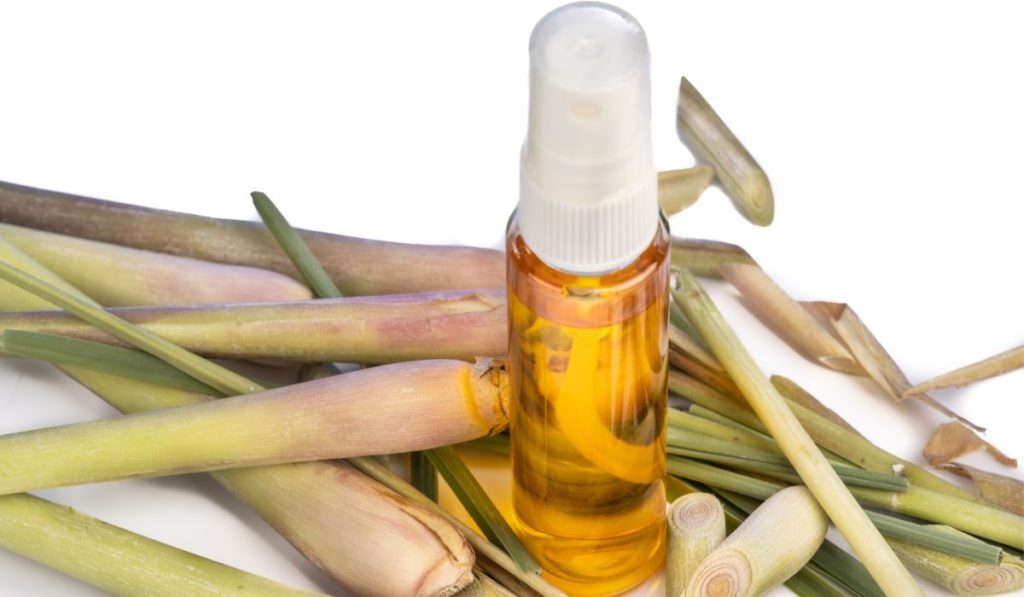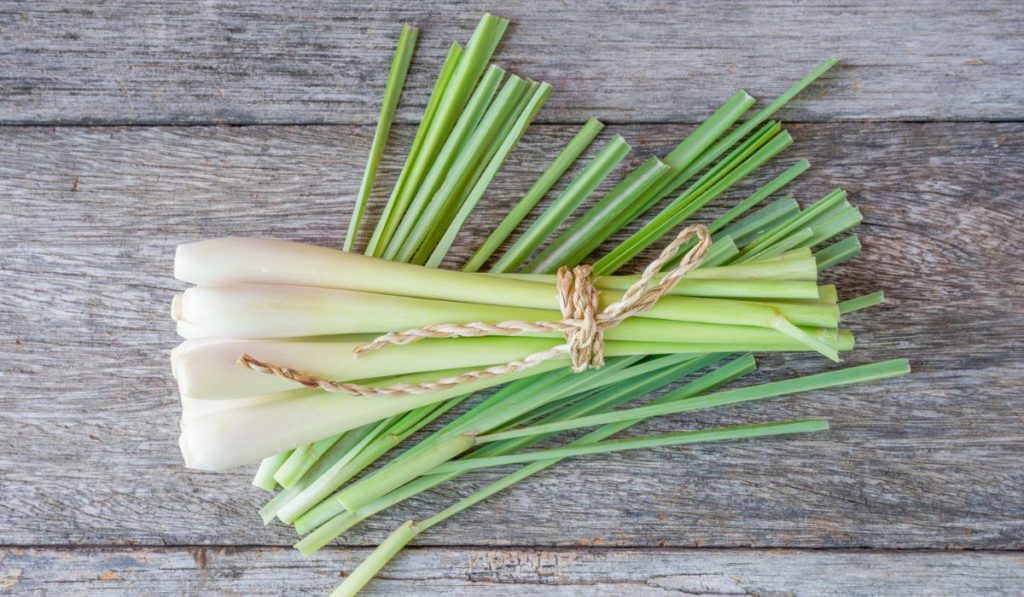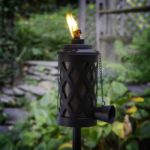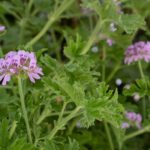Lemongrass is an aromatic herb with many important benefits and uses. It’s a common ingredient used in cooking and an ambient fragrance used in lifestyle activities and recreational spas. But did you know that lemongrass is also a very effective pest control solution?
Lemongrass is an excellent mosquito repellent. Using sprays or lotions infused with lemongrass oil helps protect you from mosquito bites. Making your own lemongrass spray is also quite easy. Lavender, rosemary, and eucalyptus are some other herbs that effectively repel mosquitoes.
It’s essential to protect yourself from disease-spreading mosquitoes while enjoying your time outdoors. If you want to avoid using sprays that contain harsh chemicals, then choosing a natural remedy like lemongrass is a great option. Let’s look at how effective lemongrass is at repelling mosquitoes, how it’s differs from citronella, and how to use it properly.
What Is Lemongrass?

Lemongrass (Cymbopogon citratus) is a perennial grass that’s native to Southeast Asia. It’s commonly used in Thai cuisine and as a natural remedy for high blood pressure, neurological problems, and digestive issues.
It’s similar in appearance to citronella and has a pleasant citrusy aroma, which is why it’s often used to provide a fresh scent in room sprays, soaps, diffusers, and candles.
Extracted from lemongrass, lemongrass oil is used in many natural mosquito repellents. Its primary compounds are geranyl acetate and citral, which work great as natural pest repellents.
Lemongrass also has anti-fungal and antibacterial properties. It has been used as a fever reducer and pain reliever for centuries.
Does Lemongrass Repel Mosquitoes?
Lemongrass works great as a mosquito repellent. This tall herb contains concentrations of citronella that help in repelling mosquitoes quite effectively. It’s FDA-registered and is widely used in mosquito repellent sprays, lotions, and candles.
Recent research has verified the mosquito-repellent properties of this plant, and it’s been proven it to be highly effective against many species of disease-transmitting mosquitoes.
In one study, volunteers covered their arms and face with lemongrass oil before entering a room with mosquitoes.
When they came out after three hours, the volunteers had no mosquito bites, and the mosquitoes that came in direct contact with the lemongrass oil died. This proves that not only lemongrass oil repels mosquitoes, but it also kills them upon contact.
However, it’s essential to note that in spite of being an extremely effective mosquito repellent, the lemongrass plant can only control your backyard infestations. It’s not suitable for particularly mosquito-driven places such as swampy areas.
If you want to use the strong fragrance of lemongrass to protect you from mosquito bites while you’re sitting outside enjoying the balmy summer nights, then consider planting this herb in your backyard or along your porch.
What’s the Most Effective Way to Use Lemongrass?
Spraying a lemongrass spray (on Amazon) or using lemongrass lotion (also on Amazon) on your skin helps to repel mosquitoes. There’re several lemongrass sprays available that you can choose from, or you can make one yourself easily at home.
To make your own spray, add lemongrass and water to a pot and bring it to a boil. Once the water turns yellow, turn off the fire, cover the pot, and let it cool, preferably overnight. Use a medium-sized spray bottle to store this mixture and spray generously around the house to get rid of mosquitoes.
Although lemongrass is an effective bug repellent, remember that it requires frequent applications. You’ll have to reapply lotion every hour to maintain its effectiveness.
This might seem like a hassle since products with DEET are recommended to be applied only every 4 hours, but lemongrass is a natural and non-toxic herb that has no long-term side effects.
Avoid applying pure lemongrass oil directly to your skin as it can cause irritation. Dilute it with other essential oils to create something effective and pleasant.
Burning lemongrass leaves also doesn’t work. It’ll only irritate your nose and leave your home smelling for hours without having any effect on the mosquitoes.
Lemongrass vs. Citronella

Citronella is one of the most commonly known natural mosquito repellents. However, you’ll be surprised to know that it’s not derived from the citronella or ‘mosquito’ plant. Citronella plants are actually just scented geraniums that belong to the Pelargonium citrosum variety.
The citronella oil we believe to be the essential oil that helps repel mosquitoes is derived from the stems and leaves of the lemongrass plant, which belongs to the Cymbopogon genus.
What Other Plants Repel Mosquitoes?
Mosquitoes find the smell of many plants and herbs irritating. These include:
Lavender
Lavender is commonly used in the commercial manufacturing of fly and mosquito repellents. It’s also used in cosmetics and has amazing relaxing properties. Lavender is a hardy plant that can be grown in a pot or directly in the soil. You can also dry its flowers, put them in small bags and place them around the house to repel mosquitoes while enjoying the pleasant scent.
Citronella
One of the most effective bug repellents, Citronella has a floral smell. Citronella oil is a common ingredient in many mosquito repellents.
Catnip
An absolute favorite plant of cats, catnip is a medicinal herb that produces an oil that is very effective in killing bugs. This perennial herb belongs to the mint family, and it derives its name from the response of cats toward this plant.
Eucalyptus
It’s a common belief among many people that smelling a eucalyptus leaf helps provide relief from a puffy nose. Although humans find the scent of eucalyptus pleasing, bugs aren’t a fan of this plant.
Rosemary
Typically used in cuisines to enhance the flavor, rosemary is also a powerful bug repellent. It’s easy to plant and grow and is highly resistant to dryness and cold.
Basil
This humble and beautiful plant is an effective natural mosquito beater, as mosquitoes can’t stand its sweet smell. This plant is easy to grow, and you don’t need to pluck its leaves and rub them on your skin to benefit from its pungent aroma.
Lemon Balm
This multipurpose plant belongs to the mint family and helps to effectively repel those marauding mosquitoes. It’s easy to grow and can increase in size quickly.
Lemon Thyme
Mosquitoes typically find strong citrusy smells very irritating, as these scents interfere with their ability to detect people. You can plant a lemon thyme herb in a planter or in your garden. Rubbing a few leaves of lemon thyme against your skin helps to set free the potent essential oils inside.
Marigolds
Pleasing to the eye and easy to grow, marigolds give off a pungent smell that repels mosquitoes. You can plant them in your garden or use cut marigold flowers to drive away bugs.
Is Lemongrass Safe for Dogs?
Lemongrass can be quite harmful to dogs. If ingested in large quantities, it can make your dog quite ill. Eating lemongrass can cause diarrhea, vomiting, and other stomach-related issues in your dog.
The severity of these symptoms depends on how much was ingested. Large quantities can be more troublesome compared to smaller amounts.
Some natural pest deterrents for dogs, like sprays and flea collars, also contain small amounts of lemongrass. Make sure that your dog isn’t around when you use lemongrass oil in your diffuser.








